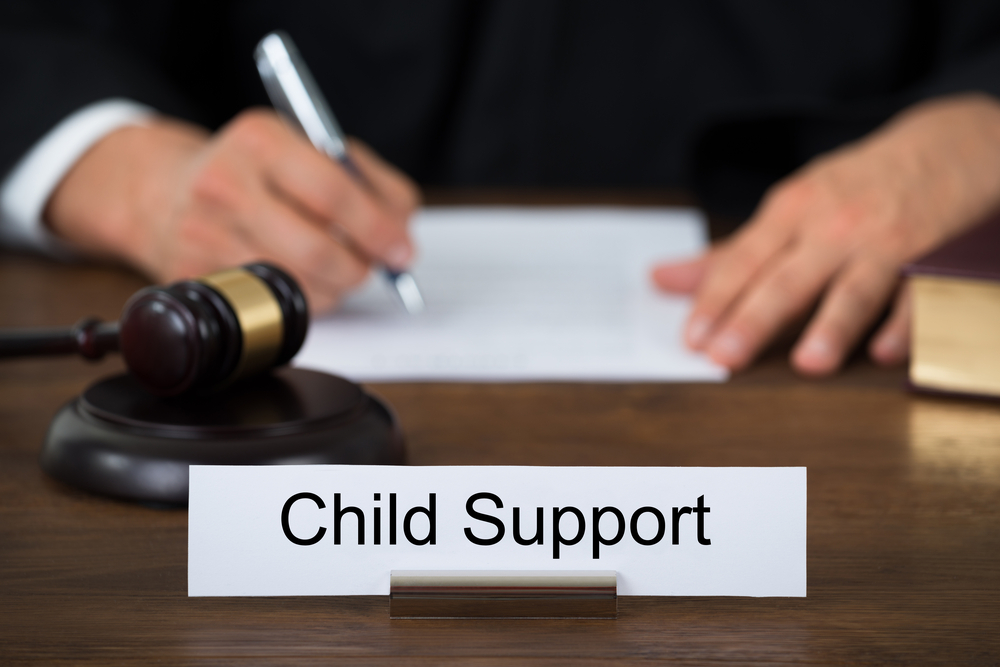Edmonton Child Support Lawyers Serving Alberta and Western Canada
 Children have the legal right to financial support from both parents, even if the parents are not together.
Children have the legal right to financial support from both parents, even if the parents are not together.
When family circumstances change, child support should be one of the first issues addressed to ensure the continuity of the child’s well-being and routines.
Child support is the right of the child, not the parent, and cannot be waived. This is true even if the child never lived with the parent.
At Chadi & Company, we understand that child support payments can impact your family’s finances and well-being for years to come.
Our legal team has been serving Edmonton and across Alberta since 1991, we understand the ins and outs of Alberta law.
Our experienced child support lawyers will work tirelessly to protect the best interests of your child.
Alberta Child Support Law
You may be able to reach a child support agreement without going to court.
That being said, child support calculations can be highly complex, and an experienced child support lawyer can help to ensure that you are paying, or receiving, a fair amount.
Who Can Apply for Child Support?
Child support payments provide financial support for the benefit of a child. The payments are typically made by one parent or guardian to another. An application for child support can be made by:
- The child (typically a person under the age of 18, with some exceptions);
- A parent or guardian of the child;
- Anyone else who has care and control of the child; or
- A person who has a judge’s permission to apply.
Who Must Pay Child Support?
Both parents have a legal obligation to support their children financially. The person who gave birth to the child is considered the biological mother. According to the Family Law Act, a person is presumed by law to be the biological father if:
- He was married to the mother at the time of the child’s birth;
- He was married to the mother and the marriage ended less than 300 days before the child’s birth;
- He married the mother after the child’s birth and acknowledged that he is the father;
- He lived with the mother for at least one year during which the child was born and acknowledged that he is the father;
- He is listed as the father on the child’s birth certificate; or
- A court has determined that he is the father.
This presumption may be rebutted, with evidence, and the court may request a DNA test to prove the identity of the father.
In addition to the biological mother and father, the term “parent” can be construed by the court to include adoptive parents, stepparents, or others who are serving a parental role.
Each family arrangement is unique, and our experienced child support lawyers have helped many different types of families across Alberta.
Looking for an experienced child support lawyer in Edmonton?
Call us today at (780) 429-2300 or request a free consultation if you have questions about your child support case in Edmonton or the surrounding areas.
Child Support Calculation in Alberta
Child support payments are based on several factors. Federal guidelines and tables can help you determine the basic child support amount, but this is not usually the final amount paid.
A child support lawyer can help determine how custody arrangements and other special circumstances may increase or decrease this amount.
Basic child support calculations are based on the number of children, the province or territory where the paying parent (“payor”) lives, and the payor’s before-tax annual income (or “guideline income”). Federal child support tables for each province and territory are used to calculate the base amount of child support. The amounts in these tables are determined based on what parents in different income brackets typically spend on the direct and indirect costs of children, including housing and transportation.
Parenting arrangements (also known as child custody arrangements or parental orders) can change the child support payment amount. Where parents share parenting time (also known as shared custody), calculations for what each parent would owe are made according to the federal tables. The difference between the two amounts is paid to the parent with the lower income.
Special and extraordinary expenses may also be considered by the court in determining the final child support payment amount. These expenses are in addition to regular living expenses.
However, it’s important not to assume that the child support amount will include these items. The court will consider multiple factors, such as whether the expense is ongoing or new, and the types of similar expenses incurred in the past.
Some of the many special expenses may include:
- Medical and dental costs not covered by insurance;
- Post-secondary education;
- Extracurricular activities;
- Summer camps; and
- Daycare or after-school care.
Contact Chadi & Company Today
If you have questions about child support, the skilled legal team at Chadi & Company can help. Our Edmonton child support lawyers understand the sensitive nature of these cases.
We will ensure that you fully understand your rights and obligations under Alberta law and work tirelessly to protect the financial well-being of your family, both in and out of court. Contact us today for a confidential consultation about your case.
Frequently Asked Questions
Yes. While federal guidelines set the basic child support amount, there are other factors the court will consider that may increase or decrease the final child support amount.
A recipient may push for a higher amount based on special expenses, such as extracurricular expenses or medical procedures not covered by insurance.
A payor may argue undue hardship to decrease the payment amount.
A skilled child support lawyer can protect your interests and potentially make a real difference in the final child support amount.
Under both the federal Divorce Act and the provincial Family Law Act, child support typically ends at age 18, with some exceptions.
A physical or mental disability that prevents the child from living independently may result in an extension of child support payments.
If the child is over 18 but a full-time student and depends on parents’ financial support, child support may also be extended. These decisions may depend on additional factors, and every case is different.
Be sure to contact a child support lawyer if you have questions about ending payments.
Many child support orders contain a clause that allows for annual recalculation of child support through the Child Support Recalculation Program. Other changes require a modification to the court order.
Contact us if your financial or living circumstances have changed so that we can determine whether modifications to the child support payment amount may be appropriate.








